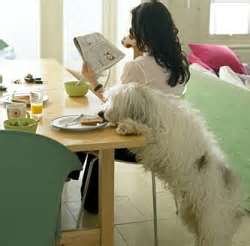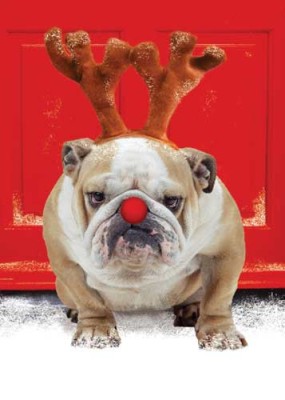We all look forward to the holidays as a time to relax, celebrate and spend time with family and friends. As our pets are part of the family, we certainly don’t want to exclude them from the festivities. However, though not always obvious, the holidays can create many potential hazards for pets. Here are some risks that you should be aware of and suggested solutions:

NEW YEAR’S RESOLUTION #1: I Will Not Eat Table Scraps
Overeating: We all eat too much during the holidays! As with humans, obesity is a major concern for pets, affecting over 40% of dogs and 25% of cats. Many holiday foods are fatty or greasy, or feature choking hazards such as wrappers and bones. Others, such as chocolate, walnuts, and avocados contain toxins that pets cannot digest. Even if the food itself isn’t dangerous, the volume certainly can be. You do not want to deal with a vomiting pet or a bout of pancreatitis during this otherwise festive time of year.
Preventing a problem is much easier (and cheaper) than treating it! Keeping feeding routines unchanged and advising guests not to give in to those sad eyes by sneaking table scraps will help prevent overeating.

Dangerous Décor: Holiday décor, particularly around the Christmas tree, poses a number of dangers for pets. Of the most serious are the lights. Many pets like to chew on exposed wires, and biting into 120 volts is no fun! Always cover wires and keep them out of the reach of curious pets. Or, try using lights that run on D or 9-volt batteries or low voltage lights that cut currents to 12 volts.
Avoid tinsel, which can cause serious intestinal problems in cats, and glass bulbs, which are attractive to dogs who love to retrieve. Plants like mistletoe, holly, and poinsettia can also be toxic. Consider keeping pets at a distance by using chicken wire, commercial-grade double-sided tape or a Scat Mat, which delivers a very low electric impulse when touched. Anchor trees to a wall or ceiling to prevent tipping.

Stress: Entertaining may be fun for you, but it can be stressful for pets. Make sure they are wearing identification tags in case they seize the opportunity to bolt through an open door, and keep a close watch on dogs around unfamiliar children, as even calm, socialized dogs can panic and bite if they feel threatened. For very sensitive pets, consider confining them to a quiet room or use a natural supplement to help ease nerves and make them more comfortable.

Above all else, it is important to remember that even with the best planning and most conscientious care, accidents do happen. Make sure you keep numbers for your veterinarian and local 24-hour emergency facility handy just in case.
For the Best the Pet Lifestyle and Animal Welfare has to offer follow Wendy Diamond on Facebook, Twitter, and right here at AnimalFair.com!
